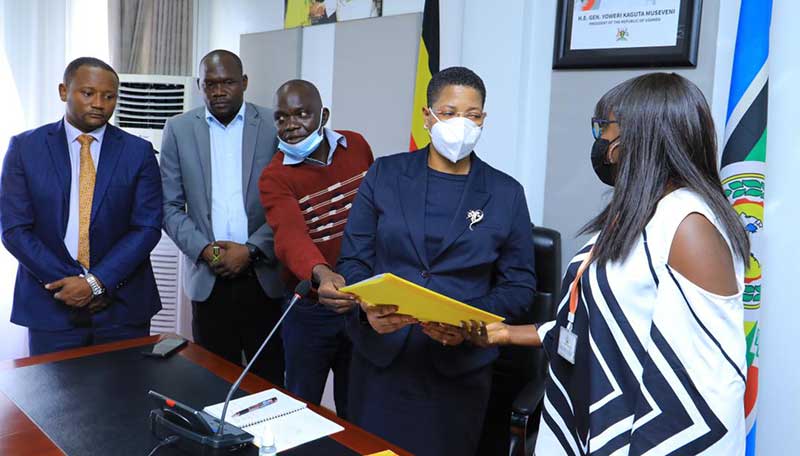News
Treat DARKNESS in West Nile as a National Emergency and Disaster

Speaker of Parliament Anita Among recently received a petition from a group of activists from West Nile region demanding immediate government action to connect the region to the national power grid
The people of West Nile are bitter about the way the government of Uganda has apparently made them an island of darkness, poverty, poor health and academic backwardness.
The sense of anger and bitterness arises from the neglect by the government of the region from benefiting not just from its rightful share of electricity, but also from other basic social services such as access to healthcare, justice and rule of law, education and other economic benefits that come with reliable access to electricity.
West Nile is an integral part of Uganda whose population of more than 3 million people, actively participates in national development through paying taxes, defending the territorial integrity of the country in armed forces, engaging in productive economic work, and, let’s not forget their hospitality seen from the fact that the region hosts the biggest number of refugees from war-torn neighbouring countries.
To date however, the region has remained an island of darkness that has condemned it to wanton loss of lives in health facilities, a scarecrow to investors, a den of marauding thieves at night, and a region of under-development due to lack of power.
The licensed private operator WENRECO and its ‘cousin’ ElectroMax, who use heavy diesel to generate electricity which it sells at astronomical tariffs, has admitted it can no longer afford to meet the challenge. Therefore, essential social services like hospitals, courts, schools and government offices spend days without power.
But why condemn an entire population of 3m people to private interests as if they don’t deserve to enjoy the fruits of their taxes and national service?
It is more than 5 years since the government borrowed US$100m from the World Bank to build a 314km long 133kv Lira-Gulu-Nebbi-Arua (LGNA) line that would connect the region to the national grid. To date the project appears to have been abandoned. Instead the Minister of energy Ruth Nankabirwa recently took a trip to the region to revive what many consider a failed Nyagak 3, hydro power dam.
It’s interesting to note that other power interconnection projects such as the Nkenda-Bunia-Butembo 396km-long (220KV) line that will take power from Uganda to Eastern DRC, are progressing well.
Although this Uganda-Congo line is not being implemented by the Gov’t of Uganda, it comes as a shame that the Ugandan officials participate in meetings to export power when their own people are in darkness.
All this points to deep-seated inefficiencies in the government agencies that are responsible for delivering social services to Ugandans.
We wish to urge the government to address this matter as a national emergency. The silent deaths happening in West Nile are too many to be ignored.
Comments


















